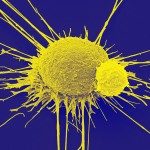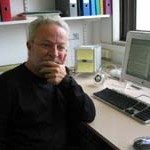Link to Pubmed [PMID] – 15024048
J. Exp. Med. 2004 Mar;199(6):843-53
B cell tolerance or autoimmunity is determined by selective events. Negative selection of self-reactive B cells is well documented and proven. In contrast, positive selection of conventional B cells is yet to be firmly established. Here, we demonstrate that developing self-reactive B cells are not always highly sensitive to the deletion mechanisms imposed by membrane-bound self-antigens. At low amounts, membrane-bound antigens allow survival of B cells bearing a single high affinity self-reactive B cell receptor (BCR). More importantly, we show that forced allelic inclusion modifies B cell fate; low quantities of self-antigen induce the selection and accumulation of increased numbers of self-reactive B cells with decreased expression of antigen-specific BCRs. By directly measuring antigen binding by intact B cells, we show that the low amounts of self-antigen select self-reactive B cells with a lower association constant. A fraction of these B cells is activated and secretes autoantibodies that form circulating immune complexes with self-antigen. These findings demonstrate that conventional B cells can undergo positive selection and that the fate of a self-reactive B cell depends on the quantity of self-antigen, the number of BCRs engaged, and on its overall antigen-binding avidity, rather than on the affinity of individual BCRs.

